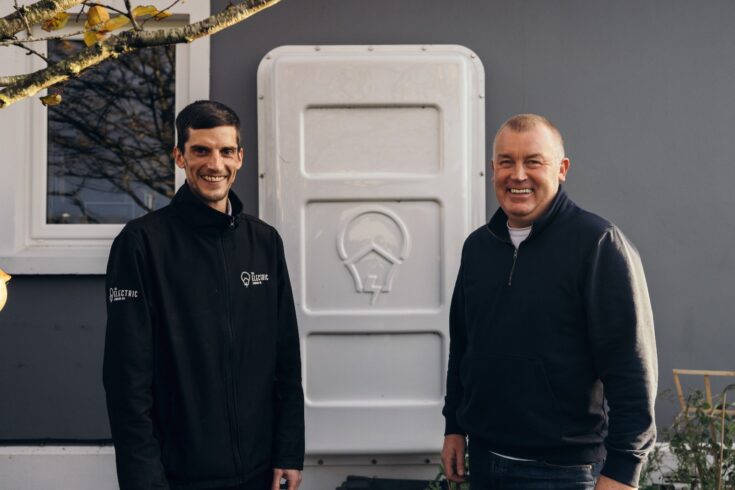Imagine if a community had the ability to create, store and control its own renewable power, reducing bills, as well as its carbon footprint. Project Girona aims to do just that.
Jamie Rea, Project Manager at The Electric Storage Company, part of the consortium delivering Project Girona said:

Credit: Girona
We want to make the energy market more democratic, combating the current trend of users feeling powerless, uninformed and out-of-pocket.
The project sets out to bring cheaper, greener electricity to homes and communities, helping to insulate them from price rises that can put a strain on so many households.
Funded with £2.43 million from UK Research and Innovation’s prospering from the energy revolution (PFER) challenge, Project Girona has created Northern Ireland’s first smart electricity grid.
Rea said:
41% of electricity consumed on the island of Ireland is generated by renewable sources. However, currently, if the energy that is created by wind or solar can not be used at that moment, it is wasted. So, intelligent battery storage is key to making renewable energy more reliable.
The project has installed solar panels along with smart storage batteries to 60 properties and commercial premises in the Coleraine area. It has also developed the PARIS energy management platform, software that maximises efficiency by using data analytics to decide whether the solar power should be used, stored or provide grid service. PARIS is being further developed with peer-to-peer sharing and market trading functionalities. This will enable users to share stored electricity with other users or sell stored electricity on the single energy market.
Rea explained:
The software is incredibly sophisticated. Not only does it learn and adapt to how individual households use electricity, but it takes into account market prices and weather forecasts.
In the not-so-distant future, a week of sunny weather would mean a surplus of energy to sell to the network, helping customers to potentially profit from unused capacity and reduce their energy costs.
It puts the customer at the centre of decision making, and it all happens without them having to do a thing.
The savings for users are significant: reducing standard electricity bills between 40% to 60%. Collectively, the cluster of properties and commercial premises saved 13.6 tonnes of carbon dioxide (CO2) between February and September 2021 compared with using energy generated by power stations.
Rea added:
That’s the equivalent of taking 10 family cars off the road in terms of CO2 production.

Credit: Girona
During the same period, a total of 14,000kWh of electricity was also exported back to the network, enabling more people to benefit from renewable energy and also helping stabilise the grid. This is an important consideration for network companies as they increasingly rely on fluctuating renewable sources of energy.
Data from the project is being collected and analysed to enable the team to build a business case for this type of smart local energy system. Plans are already under way to work with housing associations, local councils and power network companies.
Rea said:
Project Girona is more than just installing 60 sets of solar panels and batteries. We’re proving this technology is beneficial to everyone: individual customers, businesses, local authorities, energy networks and the planet.
Ultimately, the project showcases how smart renewables in homes and businesses will play a key role in contributing to net zero targets, said PFER challenge Director, Rob Saunders:
If we are to meet these targets, the existing networks and systems that are used to transmit and distribute power need to be revolutionised and Project Girona is 1 of the projects at the forefront of this revolution.
The Prospering from the Energy Revolution challenge is delivered by Innovate UK.
Top image: Credit: Girona

